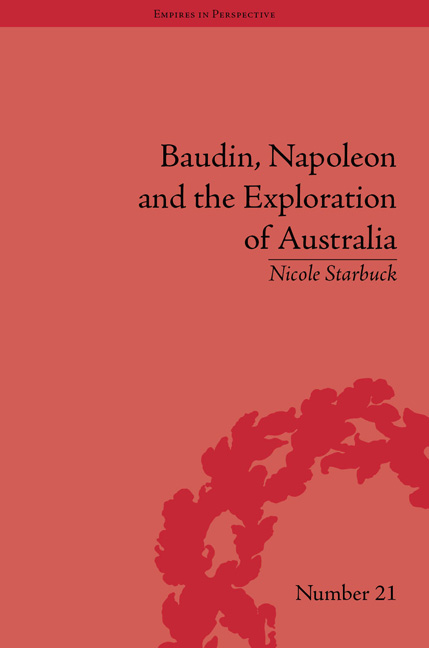Book contents
- Frontmatter
- CONTENTS
- Acknowledgements
- List of Figures
- Introduction: Voyaging out of the Enlightenment
- 1 Between Revolution and Empire: France and its Australian Voyage in 1800
- 2 ‘I Should Wish … to Establish a Few Tents on Shore’: The Port Jackson Stay
- 3 Disciplining Passions: French Naval-Voyagers at Anchor
- 4 The French and the British: A Diplomatic Relationship
- 5 Liberty, Equality and ‘Civilization’: Observations of Colonial Aborigines
- 6 Swans, Frogs and Rum: Natural History in an ‘Unnatural’ Space
- 7 Baudin's ‘New Expedition’
- 8 Epilogue: Voyaging into the Nineteenth Century
- Notes
- Works Cited
- Index
6 - Swans, Frogs and Rum: Natural History in an ‘Unnatural’ Space
- Frontmatter
- CONTENTS
- Acknowledgements
- List of Figures
- Introduction: Voyaging out of the Enlightenment
- 1 Between Revolution and Empire: France and its Australian Voyage in 1800
- 2 ‘I Should Wish … to Establish a Few Tents on Shore’: The Port Jackson Stay
- 3 Disciplining Passions: French Naval-Voyagers at Anchor
- 4 The French and the British: A Diplomatic Relationship
- 5 Liberty, Equality and ‘Civilization’: Observations of Colonial Aborigines
- 6 Swans, Frogs and Rum: Natural History in an ‘Unnatural’ Space
- 7 Baudin's ‘New Expedition’
- 8 Epilogue: Voyaging into the Nineteenth Century
- Notes
- Works Cited
- Index
Summary
Despite their despair about the Aboriginal inhabitants, Baudin's naturalists saw Port Jackson as a promising and rich field sure to advance their contributions to the natural sciences. Péron, for one, newly settled in his accommodation in Sydney with his collections in crates stacked around him and impatient to venture into the countryside, predicted that this sojourn would affect a vital turning point in the expedition's scientific mission:
New Holland, this country so vast and still so new to the naturalist, would seem to provide us with the most plentiful and important collections, and yet they are almost useless … Fortunately, our current stopover at Port Jackson must give me the opportunity to most closely observe the animals of this continent and I will neglect nothing in taking the fullest advantage to this end.
The young naturalist and his colleagues, overall, were far more at ease collecting and studying the plants, minerals, animals and even ethnographic objects of Port Jackson than observing the Indigenous inhabitants, whose basic humanity had been too close for comfort. These activities were no less complicated by the particular characteristics of the colonial field, but they were less confronting to the Frenchmen and less disappointing in regard to hopes of national and imperial progress.
In fact, this rejection of one part of the colonial environment and the embrace of the rest forms only one element of how the Frenchmen gave meaning to their scientific collecting and observing at Port Jackson. It will be recalled that the commission of the Institut had intended Baudin to avoid ‘sojourns … in areas already known’ – sojourns ‘of no use to science’. There was no mention of how colonized areas were placed within this perception of usefulness, but it is implied by the fact that the one colony yet established in the Terres australes was not included in Baudin's itinerary. In fact, far from suggesting that the expedition explore the colonial environment, the Comte de Fleurieu instructed Baudin to keep in mind that, just given their proximity to Port Jackson, the waters of Bass Strait were likely to have been already charted by the British and therefore only merited a ‘general survey’.
- Type
- Chapter
- Information
- Baudin, Napoleon and the Exploration of Australia , pp. 101 - 124Publisher: Pickering & ChattoFirst published in: 2014

